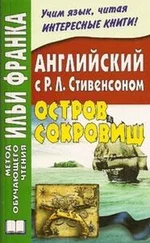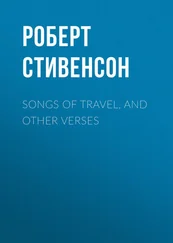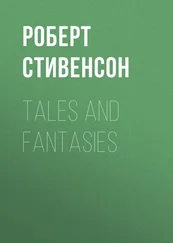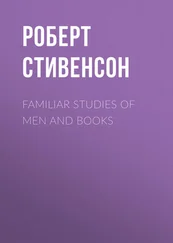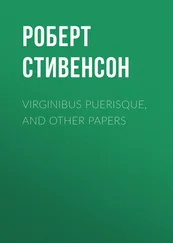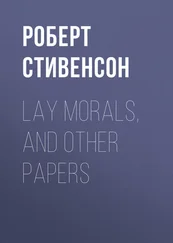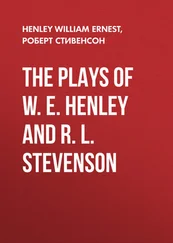Роберт Стивенсон - Memories and Portraits
Здесь есть возможность читать онлайн «Роберт Стивенсон - Memories and Portraits» — ознакомительный отрывок электронной книги совершенно бесплатно, а после прочтения отрывка купить полную версию. В некоторых случаях можно слушать аудио, скачать через торрент в формате fb2 и присутствует краткое содержание. Жанр: literature_19, foreign_antique, foreign_prose, Биографии и Мемуары, на английском языке. Описание произведения, (предисловие) а так же отзывы посетителей доступны на портале библиотеки ЛибКат.
- Название:Memories and Portraits
- Автор:
- Жанр:
- Год:неизвестен
- ISBN:нет данных
- Рейтинг книги:4 / 5. Голосов: 1
-
Избранное:Добавить в избранное
- Отзывы:
-
Ваша оценка:
- 80
- 1
- 2
- 3
- 4
- 5
Memories and Portraits: краткое содержание, описание и аннотация
Предлагаем к чтению аннотацию, описание, краткое содержание или предисловие (зависит от того, что написал сам автор книги «Memories and Portraits»). Если вы не нашли необходимую информацию о книге — напишите в комментариях, мы постараемся отыскать её.
Memories and Portraits — читать онлайн ознакомительный отрывок
Ниже представлен текст книги, разбитый по страницам. Система сохранения места последней прочитанной страницы, позволяет с удобством читать онлайн бесплатно книгу «Memories and Portraits», без необходимости каждый раз заново искать на чём Вы остановились. Поставьте закладку, и сможете в любой момент перейти на страницу, на которой закончили чтение.
Интервал:
Закладка:
Robert Louis Stevenson
Memories and Portraits
NOTE
This volume of papers, unconnected as they are, it will be better to read through from the beginning, rather than dip into at random. A certain thread of meaning binds them. Memories of childhood and youth, portraits of those who have gone before us in the battle – taken together, they build up a face that “I have loved long since and lost awhile,” the face of what was once myself. This has come by accident; I had no design at first to be autobiographical; I was but led away by the charm of beloved memories and by regret for the irrevocable dead; and when my own young face (which is a face of the dead also) began to appear in the well as by a kind of magic, I was the first to be surprised at the occurrence.
My grandfather the pious child, my father the idle eager sentimental youth, I have thus unconsciously exposed. Of their descendant, the person of to-day, I wish to keep the secret: not because I love him better, but because, with him, I am still in a business partnership, and cannot divide interests.
Of the papers which make up the volume, some have appeared already in The Cornhill , Longman’s , Scribner , The English Illustrated , The Magazine of Art , The Contemporary Review ; three are here in print for the first time; and two others have enjoyed only what may he regarded as a private circulation.
R. L S.CHAPTER I. THE FOREIGNER AT HOME
“This is no my ain house;
I ken by the biggin’ o’t.”
Two recent books 1 1 1881.
one by Mr. Grant White on England, one on France by the diabolically clever Mr. Hillebrand, may well have set people thinking on the divisions of races and nations. Such thoughts should arise with particular congruity and force to inhabitants of that United Kingdom, peopled from so many different stocks, babbling so many different dialects, and offering in its extent such singular contrasts, from the busiest over-population to the unkindliest desert, from the Black Country to the Moor of Rannoch. It is not only when we cross the seas that we go abroad; there are foreign parts of England; and the race that has conquered so wide an empire has not yet managed to assimilate the islands whence she sprang. Ireland, Wales, and the Scottish mountains still cling, in part, to their old Gaelic speech. It was but the other day that English triumphed in Cornwall, and they still show in Mousehole, on St. Michael’s Bay, the house of the last Cornish-speaking woman. English itself, which will now frank the traveller through the most of North America, through the greater South Sea Islands, in India, along much of the coast of Africa, and in the ports of China and Japan, is still to be heard, in its home country, in half a hundred varying stages of transition. You may go all over the States, and – setting aside the actual intrusion and influence of foreigners, negro, French, or Chinese – you shall scarce meet with so marked a difference of accent as in the forty miles between Edinburgh and Glasgow, or of dialect as in the hundred miles between Edinburgh and Aberdeen. Book English has gone round the world, but at home we still preserve the racy idioms of our fathers, and every county, in some parts every dale, has its own quality of speech, vocal or verbal. In like manner, local custom and prejudice, even local religion and local law, linger on into the latter end of the nineteenth century — imperia in imperio , foreign things at home.
In spite of these promptings to reflection, ignorance of his neighbours is the character of the typical John Bull. His is a domineering nature, steady in fight, imperious to command, but neither curious nor quick about the life of others. In French colonies, and still more in the Dutch, I have read that there is an immediate and lively contact between the dominant and the dominated race, that a certain sympathy is begotten, or at the least a transfusion of prejudices, making life easier for both. But the Englishman sits apart, bursting with pride and ignorance. He figures among his vassals in the hour of peace with the same disdainful air that led him on to victory. A passing enthusiasm for some foreign art or fashion may deceive the world, it cannot impose upon his intimates. He may be amused by a foreigner as by a monkey, but he will never condescend to study him with any patience. Miss Bird, an authoress with whom I profess myself in love, declares all the viands of Japan to be uneatable – a staggering pretension. So, when the Prince of Wales’s marriage was celebrated at Mentone by a dinner to the Mentonese, it was proposed to give them solid English fare – roast beef and plum pudding, and no tomfoolery. Here we have either pole of the Britannic folly. We will not eat the food of any foreigner; nor, when we have the chance, will we suffer him to eat of it himself. The same spirit inspired Miss Bird’s American missionaries, who had come thousands of miles to change the faith of Japan, and openly professed their ignorance of the religions they were trying to supplant.
I quote an American in this connection without scruple. Uncle Sam is better than John Bull, but he is tarred with the English stick. For Mr. Grant White the States are the New England States and nothing more. He wonders at the amount of drinking in London; let him try San Francisco. He wittily reproves English ignorance as to the status of women in America; but has he not himself forgotten Wyoming? The name Yankee, of which he is so tenacious, is used over the most of the great Union as a term of reproach. The Yankee States, of which he is so staunch a subject, are but a drop in the bucket. And we find in his book a vast virgin ignorance of the life and prospects of America; every view partial, parochial, not raised to the horizon; the moral feeling proper, at the largest, to a clique of states; and the whole scope and atmosphere not American, but merely Yankee. I will go far beyond him in reprobating the assumption and the incivility of my countryfolk to their cousins from beyond the sea; I grill in my blood over the silly rudeness of our newspaper articles; and I do not know where to look when I find myself in company with an American and see my countrymen unbending to him as to a performing dog. But in the case of Mr. Grant White example were better than precept. Wyoming is, after all, more readily accessible to Mr. White than Boston to the English, and the New England self-sufficiency no better justified than the Britannic.
It is so, perhaps, in all countries; perhaps in all, men are most ignorant of the foreigners at home. John Bull is ignorant of the States; he is probably ignorant of India; but considering his opportunities, he is far more ignorant of countries nearer his own door. There is one country, for instance – its frontier not so far from London, its people closely akin, its language the same in all essentials with the English – of which I will go bail he knows nothing. His ignorance of the sister kingdom cannot be described; it can only be illustrated by anecdote. I once travelled with a man of plausible manners and good intelligence – a University man, as the phrase goes – a man, besides, who had taken his degree in life and knew a thing or two about the age we live in. We were deep in talk, whirling between Peterborough and London; among other things, he began to describe some piece of legal injustice he had recently encountered, and I observed in my innocence that things were not so in Scotland. “I beg your pardon,” said he, “this is a matter of law.” He had never heard of the Scots law; nor did he choose to be informed. The law was the same for the whole country, he told me roundly; every child knew that. At last, to settle matters, I explained to him that I was a member of a Scottish legal body, and had stood the brunt of an examination in the very law in question. Thereupon he looked me for a moment full in the face and dropped the conversation. This is a monstrous instance, if you like, but it does not stand alone in the experience of Scots.
Читать дальшеИнтервал:
Закладка:
Похожие книги на «Memories and Portraits»
Представляем Вашему вниманию похожие книги на «Memories and Portraits» списком для выбора. Мы отобрали схожую по названию и смыслу литературу в надежде предоставить читателям больше вариантов отыскать новые, интересные, ещё непрочитанные произведения.
Обсуждение, отзывы о книге «Memories and Portraits» и просто собственные мнения читателей. Оставьте ваши комментарии, напишите, что Вы думаете о произведении, его смысле или главных героях. Укажите что конкретно понравилось, а что нет, и почему Вы так считаете.


